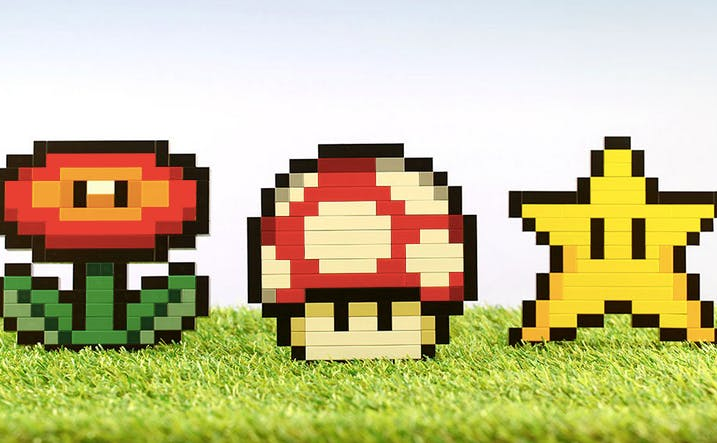In the world of gaming icons, there are few that top the nostalgia meter like Mario. From Super Smash Brothers to Mario Kart 64, most people under 40 have childhood memories of eating way too many Airheads and attacking a controller in front of a glowing screen. The advent of Mario changed the way people gamed for years to come — and Shigeru Miyamoto introduced him to the world 34 years ago. Here's why Nintendo got exponentially better once Mario hit the scene.
Mario Gave Video Games a Platform, Literally
Before Mario became Mario, he actually went by the name of Jumpman. Jumpman was a carpenter who — for reasons unknown — both had a pet gorilla and mistreated him. Donkey Kong exacted revenge on his owner by kidnapping Pauline, now affectionately known as Princess Peach, and the tension between man and beast made the perfect set-up for a platform game. Although Donkey Kong wasn’t the first platform game, it did become the prototype for the next major ones to come. That’s because instead of playing the same screen over and over again with elevated difficulty each round (like Pac-Man), Donkey Kong and Jumpman offered arcade players in 1981 new screens after each level. Combined with all the barrel rolls and jumping challenges, gamers had new levels to look forward to that weren’t as predictable.
…And a Figurative Platform, Too
Other platform games like Frogs and Pitfall made an appearance in the early days of arcades, but no game made such an impression as when Donkey Kong and Mario joined forces. Due to the popularity of the game, a series of DK/Mario games came out one year after another.
The consumer demand to play DK/Mario at the arcade gave Nintendo an elevated foothold in the gaming market, and in 1983, Mario earned his own game (Mario Brothers) with his famous sibling Luigi. It wasn’t until two years later, however, that Mario truly changed the way video games would be played forever. Which brings us to…
Mario Paved the Way for Side Scrollers
Remember how changing to a new screen once players leveled up seemed like a revolutionary idea in 1981? Those new screens were still independent of others, much like different rooms in a house. The evolution of side scrollers bolstered screen changes to the next level, thanks to Super Mario Brothers in 1985. With characters who could push the boundaries of the screen and go further, side scrollers acted more like a camera view. This way, players could watch the scene as if they were playing a character in their very own movie.
In order for this to function well, Nintendo programmers placed “triggers” in specific locations so that when Mario entered them, the camera scrolled to reveal more of the screen, which is still an industry standard to this day.
The Super Mario accomplishments didn't stop there. It was one of the first games with highly improved graphics including a blue sky background and level designs with “secret” places to discover. With his ambitious vision on programming, Miyamoto re-wrote the book for video games when Super Mario Brothers hit the scene, and our world has never been the same since.




